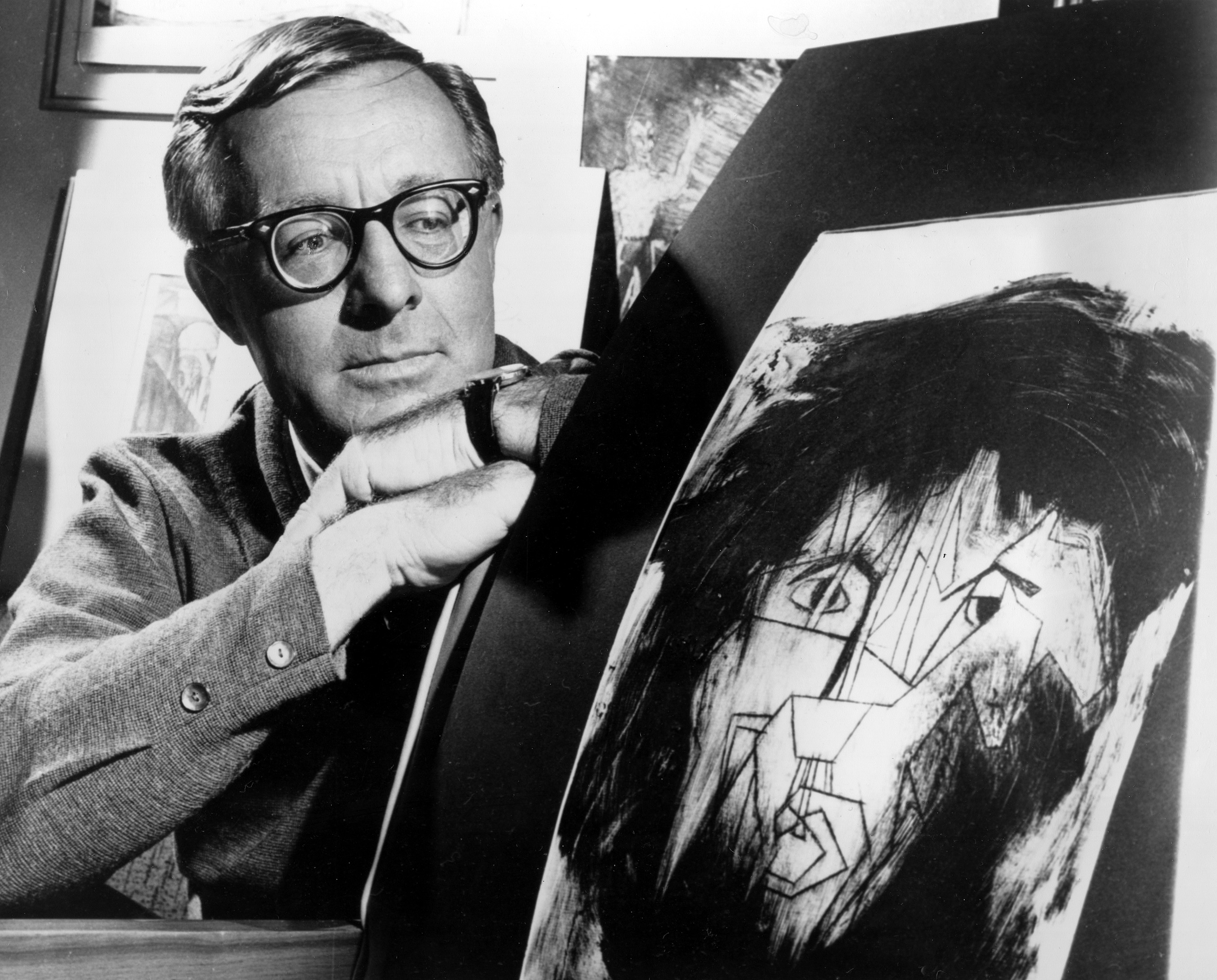Ray Bradbury, 1920-2012
Friday, January 1, 1904
 This Dec. 8, 1966 file photo shows science fiction writer Ray Bradbury looks at a picture that was part of a school project to illustrate characters in one of his dramas in Los Angeles. Bradbury, who wrote everything from science-fiction and mystery to humor, died Tuesday, June 5, 2012 in Southern California. He was 91.
This Dec. 8, 1966 file photo shows science fiction writer Ray Bradbury looks at a picture that was part of a school project to illustrate characters in one of his dramas in Los Angeles. Bradbury, who wrote everything from science-fiction and mystery to humor, died Tuesday, June 5, 2012 in Southern California. He was 91.Ray Bradbury, the masterful storyteller whose science fiction masterpieces changed the way the world looked at the genre, died Tuesday in California at 91.
Bradbury's vision and style, as well as the ready accessibility of his prose, made his works widely popular. Over his 70-year career, he produced more than 27 novels and story collections and more than 600 short stories. "Twilight Zone," the seminal TV show that used many of Bradbury's works, expanded his reach. Bradbury almost single-handedly elevated science fiction from a minor niche in the world of books into the realm of literature.
Bradbury's influence was immense. "Fahrenheit 451," his most famous novel, and "The Martian Chronicles," a series of related stories, have enjoyed widespread popularity for decades. Now, they continue to sell briskly and have become staples of high school and college courses around the globe. Indeed, Bradbury's imaginative storytelling not only won legions of readers, but inspired generations of writers and filmmakers. Stephen King, Steven Spielberg and James Cameron, for example, cite Bradbury as an inspiration for their work.
Bradbury was no recluse. Born in 1920, he lived most of his life in Los Angeles, and was a familiar figure around the city until a couple of years when a stroke reduced his activities. Until recent years, he rode a bike around the city, frequenting bookstores and happily speaking with those who recognized him. He freely shared his views and often regaled listeners with the story of his life.
His tales and reminiscences were forthright and delightful. "Libraries raised me," he once said. "I don't believe in colleges and universities ... When I graduated from high school, it was during the Depression and we had no money, I couldn't go to college, so I went to the library three days a week for 10 years." His time there obviously was well spent.
Bradbury's work endowed him with a reputation as a visionary and high-tech guru, but that was not always true. The author followed his own path.
He never learned to drive and he refused to use a computer to write the 1,000 words or so he put on paper almost every working day of his life. He did agree to use an electric typewriter, though. He didn't think much of video games -- he told a Salon interviewer that they were "male ego crap" -- or of the possibility of putting his works online.
His initial response to a Yahoo request to do the latter was, it has been reported, "To hell with you and to hell with the Internet." He did relent later.
Bradbury and his work have been appropriately honored in a variety of venues over the years. He lived a long and full life and we are the richer for his having lived it. Those who enjoy science fiction today -- given its ubiquity in movies, video games and books, tens if not hundreds of millions do -- have Bradley to thank for its place in their lives and in contemporary society.
